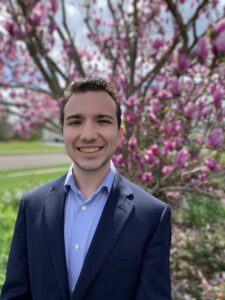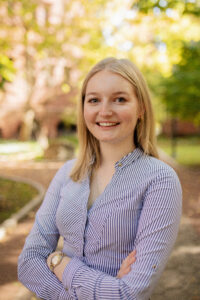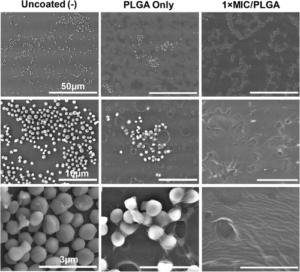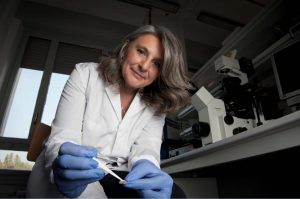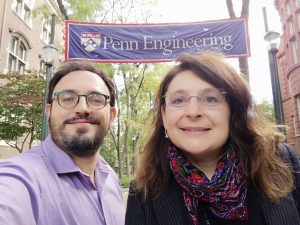Congratulations to the fourteen Bioengineering students to receive 2023 National Science Foundation Graduate Research Fellowship Program (NSF GRFP) fellowships. The prestigious NSF GRFP program recognizes and supports outstanding graduate students in NSF-supported fields. The recipients honorees were selected from a highly-competitive, nationwide pool. Further information about the program can be found on the NSF website.
 Carlos Armando Aguila, Ph.D. student in Bioengineering, is a member of the Center of Neuroengineering and Therapeutics, advised by Erin Conrad, Assistant Professor in Neurology, and Brian Litt, Professor in Bioengineering and Neurology. His research focuses on analyzing electroencephalogram (EEG) signals to better understand epilepsy.
Carlos Armando Aguila, Ph.D. student in Bioengineering, is a member of the Center of Neuroengineering and Therapeutics, advised by Erin Conrad, Assistant Professor in Neurology, and Brian Litt, Professor in Bioengineering and Neurology. His research focuses on analyzing electroencephalogram (EEG) signals to better understand epilepsy.
 Joseph Lance Victoria Casila is a Ph.D. student in Bioengineering in the lab of Riccardo Gottardi, Assistant Professor in Pediatrics and Bioengineering. His research focuses on probing environmental factors that influence stem cell differentiation towards chondrogenesis for cartilage engineering and regeneration.
Joseph Lance Victoria Casila is a Ph.D. student in Bioengineering in the lab of Riccardo Gottardi, Assistant Professor in Pediatrics and Bioengineering. His research focuses on probing environmental factors that influence stem cell differentiation towards chondrogenesis for cartilage engineering and regeneration.
 Trevor Chan is a Ph.D. student in Bioengineering in the lab of Felix Wehrli, Professor of Radiologic Science. His research is in developing computational methods for medical image refinement and analysis. Two ongoing projects are: self-supervised methods for CT super-resolution and assessment of osteoporosis, and semi-supervised segmentation of 3D and 4D echocardiograms for surgical correction of congenital heart-valve defects.
Trevor Chan is a Ph.D. student in Bioengineering in the lab of Felix Wehrli, Professor of Radiologic Science. His research is in developing computational methods for medical image refinement and analysis. Two ongoing projects are: self-supervised methods for CT super-resolution and assessment of osteoporosis, and semi-supervised segmentation of 3D and 4D echocardiograms for surgical correction of congenital heart-valve defects.
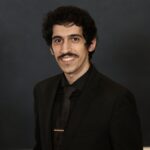 Rakan El-Mayta is an incoming Ph.D. student in the lab of Drew Weissman, Roberts Family Professor in Vaccine Research. Rakan studies messenger RNA-lipid nanoparticle vaccines for the treatment and prevention of infectious diseases. Prior to starting in the Bioengineering graduate program, he worked as a Research Assistant in Weissman lab and in the lab of Michael Mitchell, Associate Professor in Bioengineering.
Rakan El-Mayta is an incoming Ph.D. student in the lab of Drew Weissman, Roberts Family Professor in Vaccine Research. Rakan studies messenger RNA-lipid nanoparticle vaccines for the treatment and prevention of infectious diseases. Prior to starting in the Bioengineering graduate program, he worked as a Research Assistant in Weissman lab and in the lab of Michael Mitchell, Associate Professor in Bioengineering.
 Austin Jenk is a Ph.D. student in the lab of Robert Mauck, Mary Black Ralston Professor in Orthopaedic Surgery and Bioengineering. Austin aims to develop early intervention, intra-articular therapeutics to combat the onset of post-traumatic osteoarthritis following acute joint injuries. His work focuses on developing a therapeutic that can be employed not only in conventional healthcare settings, but also emergency and battlefield medicine.
Austin Jenk is a Ph.D. student in the lab of Robert Mauck, Mary Black Ralston Professor in Orthopaedic Surgery and Bioengineering. Austin aims to develop early intervention, intra-articular therapeutics to combat the onset of post-traumatic osteoarthritis following acute joint injuries. His work focuses on developing a therapeutic that can be employed not only in conventional healthcare settings, but also emergency and battlefield medicine.
 Jiageng Liu is a Ph.D. student in the lab of Alex Hughes, Assistant Professor in Bioengineering. His work aims to precisely control the bio-physical/chemical properties of iPSC-derived organoids with advanced synthetic biology approaches to create functional replacement renal tissues.
Jiageng Liu is a Ph.D. student in the lab of Alex Hughes, Assistant Professor in Bioengineering. His work aims to precisely control the bio-physical/chemical properties of iPSC-derived organoids with advanced synthetic biology approaches to create functional replacement renal tissues.
 Alexandra Neeser is a Ph.D. student in the lab of Leyuan Ma, Assistant Professor of Pathology and Laboratory Medicine. Her research focuses on solid tumor microenvironment delivery of therapeutics.
Alexandra Neeser is a Ph.D. student in the lab of Leyuan Ma, Assistant Professor of Pathology and Laboratory Medicine. Her research focuses on solid tumor microenvironment delivery of therapeutics.
 William Karl Selboe Ojemann, a Ph.D. Student in Bioengineering, is a member of the Center for Neuroengineering and Therapeutics directed by Brian Litt, Professor in Bioengineering and Neurology. His research is focused on developing improved neurostimulation therapies for epilepsy and other neurological disorders.
William Karl Selboe Ojemann, a Ph.D. Student in Bioengineering, is a member of the Center for Neuroengineering and Therapeutics directed by Brian Litt, Professor in Bioengineering and Neurology. His research is focused on developing improved neurostimulation therapies for epilepsy and other neurological disorders.
 Savan Patel (BSE Class of 2023) conducted research in the lab of Michael Mitchell, Associate Professor in Bioengineering, where he worked to develop lipid nanoparticle formulations for immunotherapy and extrahepatic delivery of mRNA. He will be joining the Harvard-MIT HST MEMP Ph.D. program in the fall of 2023.
Savan Patel (BSE Class of 2023) conducted research in the lab of Michael Mitchell, Associate Professor in Bioengineering, where he worked to develop lipid nanoparticle formulations for immunotherapy and extrahepatic delivery of mRNA. He will be joining the Harvard-MIT HST MEMP Ph.D. program in the fall of 2023.
 David E. Reynolds, a Ph.D. student in Bioengineering, is a member of the lab of Jina Ko, Assistant Professor in Bioengineering and Pathology and Laboratory Medicine. His research focuses on developing novel and translatable technologies to address currently intractable diagnostic challenges for precision medicine.
David E. Reynolds, a Ph.D. student in Bioengineering, is a member of the lab of Jina Ko, Assistant Professor in Bioengineering and Pathology and Laboratory Medicine. His research focuses on developing novel and translatable technologies to address currently intractable diagnostic challenges for precision medicine.
 Andre Roots is a Ph.D. student in the lab of Christopher Madl, Assistant Professor in Materials Science and Engineering. His research focuses on the use of protein engineering techniques and an optimized 3D human skeletal muscle microtissue platform to study the effects of biophysical material properties on cells.
Andre Roots is a Ph.D. student in the lab of Christopher Madl, Assistant Professor in Materials Science and Engineering. His research focuses on the use of protein engineering techniques and an optimized 3D human skeletal muscle microtissue platform to study the effects of biophysical material properties on cells.
 Emily Sharp, a second year Ph.D. student in Bioengineering, is a member of the lab of Robert Mauck, Mary Black Ralston Professor in Orthopaedic Surgery and Bioengineering, part of the McKay Orthopaedic Research Laboratories. Her research focuses on designing multi-functional biomaterials to enhance tissue repair, specifically intervertebral disc repair following herniation and discectomy.
Emily Sharp, a second year Ph.D. student in Bioengineering, is a member of the lab of Robert Mauck, Mary Black Ralston Professor in Orthopaedic Surgery and Bioengineering, part of the McKay Orthopaedic Research Laboratories. Her research focuses on designing multi-functional biomaterials to enhance tissue repair, specifically intervertebral disc repair following herniation and discectomy.
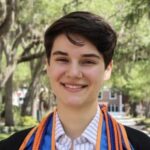 Nat Thurlow is a Ph.D. student in the lab of Louis J. Soslowsky, Fairhill Professor in Orthopedic Surgery and Bioengineering. Their current work focuses on delineating the roles of collagens V and XI in tendon mechanics, fibril structure, and gene expression during tendon development and healing.
Nat Thurlow is a Ph.D. student in the lab of Louis J. Soslowsky, Fairhill Professor in Orthopedic Surgery and Bioengineering. Their current work focuses on delineating the roles of collagens V and XI in tendon mechanics, fibril structure, and gene expression during tendon development and healing.
 Maggie Wagner, Ph.D. student in Bioengineering, is a member in the labs of Josh Baxter, Assistant Professor of Orthopaedic Surgery, and Flavia Vitale, Assistant Professor in Neurology and Bioengineering. Her research focuses on the development of novel sensors to record and monitor muscle neuromechanics.
Maggie Wagner, Ph.D. student in Bioengineering, is a member in the labs of Josh Baxter, Assistant Professor of Orthopaedic Surgery, and Flavia Vitale, Assistant Professor in Neurology and Bioengineering. Her research focuses on the development of novel sensors to record and monitor muscle neuromechanics.


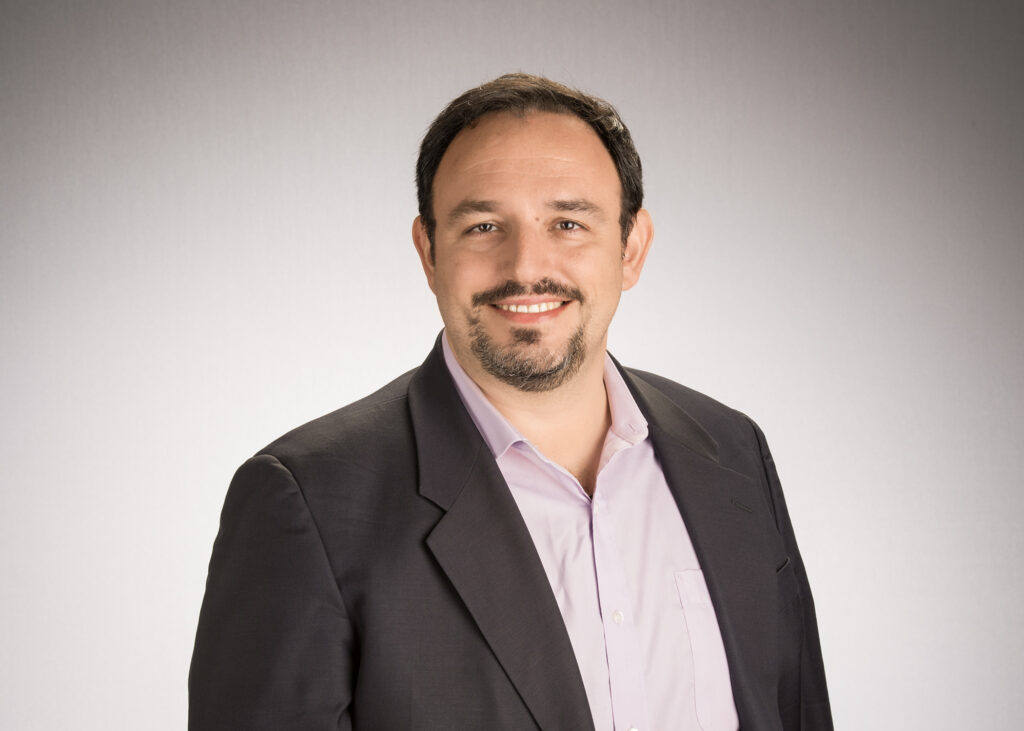
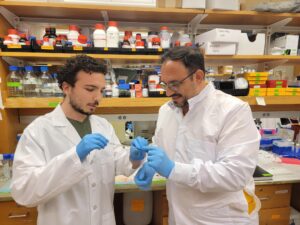
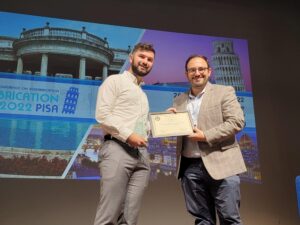
 Carlos Armando Aguila, Ph.D. student in Bioengineering, is a member of the Center of Neuroengineering and Therapeutics, advised by
Carlos Armando Aguila, Ph.D. student in Bioengineering, is a member of the Center of Neuroengineering and Therapeutics, advised by  Joseph Lance Victoria Casila is a Ph.D. student in Bioengineering in the lab of
Joseph Lance Victoria Casila is a Ph.D. student in Bioengineering in the lab of  Trevor Chan is a Ph.D. student in Bioengineering in the lab of
Trevor Chan is a Ph.D. student in Bioengineering in the lab of  Rakan El-Mayta is an incoming Ph.D. student in the lab of
Rakan El-Mayta is an incoming Ph.D. student in the lab of  Austin Jenk is a Ph.D. student in the lab of
Austin Jenk is a Ph.D. student in the lab of  Jiageng Liu is a Ph.D. student in the lab of
Jiageng Liu is a Ph.D. student in the lab of  Alexandra Neeser is a Ph.D. student in the lab of
Alexandra Neeser is a Ph.D. student in the lab of  William Karl Selboe Ojemann, a Ph.D. Student in Bioengineering, is a member of the Center for Neuroengineering and Therapeutics directed by
William Karl Selboe Ojemann, a Ph.D. Student in Bioengineering, is a member of the Center for Neuroengineering and Therapeutics directed by  Savan Patel (BSE Class of 2023) conducted research in the lab of
Savan Patel (BSE Class of 2023) conducted research in the lab of  David E. Reynolds, a Ph.D. student in Bioengineering, is a member of the lab of
David E. Reynolds, a Ph.D. student in Bioengineering, is a member of the lab of  Andre Roots is a Ph.D. student in the lab of
Andre Roots is a Ph.D. student in the lab of  Emily Sharp, a second year Ph.D. student in Bioengineering, is a member of the lab of
Emily Sharp, a second year Ph.D. student in Bioengineering, is a member of the lab of  Nat Thurlow is a Ph.D. student in the lab of
Nat Thurlow is a Ph.D. student in the lab of  Maggie Wagner, Ph.D. student in Bioengineering, is a member in the labs of
Maggie Wagner, Ph.D. student in Bioengineering, is a member in the labs of 